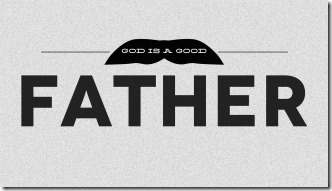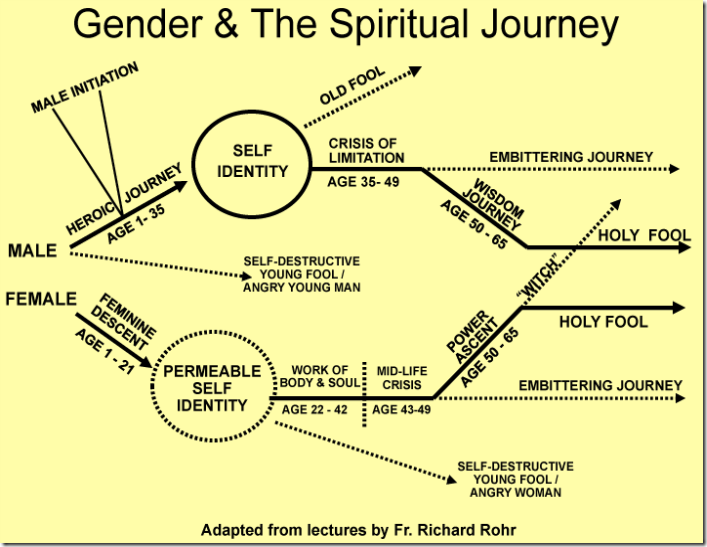Archive for January, 2016
Pew Research: A Third Wave Response Proposal
By now, it’s old news, but I’ve never been good at following trendy keywords that bring hits to my blog. Per research released a study that shows religious affiliation falling fast in the United States, with Mainline membership falling fastest of all. I’ve seen two waves of responses to this, and want to propose a third.
The first responses tended to be very alarmist. Avowed atheist communities cheered for the first death throws of Christianity, and many Christians seemed to grant the premise that they were right. We started to see blog articles, and ministry strategies for “Ministering in a post-Christian world” and finding ways to Include (if liberal) or evangelize (if conservative) the “Nones” which is a ridiculous term we started using for people with no religious affiliation, the “Spiritual but not religious”
After a few months, we stopped sounding the alarm bells as we realized that things proceeded pretty much the same as they always have. After all, the study itself showed only a modest decline, and we needed a study to even notice. Pompous responses started to flow in, that identified those who left as the least committed church members, and tried to imply we were better off without them. This wave recognized that the social benefits to self-identifying as Christian were disappearing, and that therefore the people who were only ever in it for the benefits previously are gone now while the “real christians” remain to represent themselves more accurately.
Now that the dust has settled a little bit, I think we can see where both of these responses were coming from, but hopefully see also how they are quite flawed. Neither is the sky falling, nor is the decline a good thing. Whatever the reason for it, it is not like we as a church have intentionally ceded power in society, and it would probably be good if we found a way to gain have some control over whether or not it will happen more or again.
We need to look seriously at the services and benefits we have stopped providing. There was a time when Christianity was nearly universal in the western world. During that same period, the religiously devout were only about as common as they are now, but the church was at the forefront of scientific discovery and patronage, Services were a key social venue for those that came, and church property and staff provided measurable civic benefit giving towns things they needed and would otherwise be without.
Church used to be one of the most exciting parts of the average person’s week. It was entertainment. Good stories, good music, at a time when neither of those things were readily available at home. Spiritual leaders used to be among the most educated, and most esteemed people in society. Slowly, we have stopped that, and been snooty about. We now look down on churches that want good preachers and enjoyable services as “giving in to consumer Christianity” as if bad preachers and boring services are holier
In the public sector, we have hitched our wagon to political factions. No longer to we serve the community with all that we have, we now fight against others and among ourselves to ensure that our party wins elections so that the party (whichever it is) can accomplish those things.
We have said stupid things in public, and let our dumbest voices become loudest. We have not done a good job or helping one another within the Christian community to do better. We have developed a PR problem for ourselves.
We should to start to steer the ship our of this. Denial will not help. Neither will overreaction and surrender.
What will is a commitment to enter the next generation with a focus on good ministry and Christian practice. It will take creative solutions, for new innovations of ways we can continue to bless the people around us. Music is not unique anymore, What is? It will take brutal honesty with ourselves, and work to acknowledge our own mistakes and correct them, as well as address the damage those mistakes have caused. It will take nuance, and detail, and willingness to think beyond bumper stickers or binary allegiances. It will take faith that means more than belief, and reaches to include trustworthiness. Faithfullness.
Rey’s Own Hero’s Journey
SPOILERS
Ever since Star Wars, The Force Awakens came out, people have been complaining about Rey’s depiction. Not complaining in a bad way, it’s just that nerds show their love for things by analyzing it to death. It seems like we agree that we love that we have a female protagonist, but are concerned that she will be feminist enough.
Is she really a good enough role model for young women? Why does she have to get captured and be rescued by men? And what about that indecisiveness about leaving Jakku, they are making her seem weak! She needs to be a strong leader!
Awkwardly, these critiques are mirrored by the complaint that she is too strong too fast. She won’t have a proper arc because she is already using the force better than Anakin and Luke.
I have a theory about where they might be going with this, and I’m excited about it. It may be a new way to tell the story of the monomyth. Check out this diagram.
In case you came in late and have never heard someone nerd about Star Wars before. The original trilogy is widely considered to be one of the best and purest tellings of the Hero’s Journey. It is a story told in every culture and in every time, because it mirrors the experience every young man has growing up. First the cross the threshold out of the relative saftey of childhood into the dangerous world, then they are tested by evil and trained by an old wizard, eventually gaining a reputation as a hero. But if the hero is not careful his arrogance will run away with him. The squire who becomes a knight to overthrow the evil king may become just as evil to the kingdom when he takes the throne, unless he learns to be humble he will join the Dark Side, if not he may become the old wizard for the next generation. Obviously we are talking in broad generalities, these are myths, it goes with the territory.
This is Luke, this is me. This is King Arthur, and Bilbo, and Harry Potter and Jesus. But this is not Rey. And I think it is because for young women the process of maturity tends to follow a different pattern. I’m not alone in this thinking, I borrowed from Rohr who borrowed from who knows who else.
 Women mature faster early on. They do better in elementary school and become responsible and capable ahead of the boys, they don’t have to “Leave the Shire” to find their power, they already have it. Among the most volatile powers young women discover is power over boys. Society is uncomfortable with this, and therefore tries to manipulate women in myriad unfair ways. Nevertheless heroines, If they are healthy and not tragic heroines, manage to humble themselves early, avoid societies’ slings and arrows, and develop a permeable sense of self. It could be said that teenage women start at the end of the masculine Hero’s Journey.
Women mature faster early on. They do better in elementary school and become responsible and capable ahead of the boys, they don’t have to “Leave the Shire” to find their power, they already have it. Among the most volatile powers young women discover is power over boys. Society is uncomfortable with this, and therefore tries to manipulate women in myriad unfair ways. Nevertheless heroines, If they are healthy and not tragic heroines, manage to humble themselves early, avoid societies’ slings and arrows, and develop a permeable sense of self. It could be said that teenage women start at the end of the masculine Hero’s Journey.
Unfortunately for me in attempting to prove this point, we don’t have a ton of great examples of this. Dorothy from the Wizard of Oz is probably the closest. Alice in Wonderland is okay. But mostly we have ignored great epic plots featuring women, or if we have featured women, we have not put them in roles previously written for men “This girl is a badass warrior” often explicitly “This is Conan, but a woman, we call her Sonja” What would it look like for an original character to actually tell the mythic story of maturity that women experience?
Well I’m a man. So I don’t know for sure. But I suspect it would have something to do with a woman who is thriving going nowhere, who has incredible leadership ability and skill suddenly being thrown into an environment where she must put it all into context. Forming deep relationships. Building a team, and eventually realizing that most of her limitations are self imposed and she is ready to save the universe with no-holds barred.
I think there will be an arc.
Good Good… Parent.
I know I’m starting to become the guy who is always cranky about worship music, But I have issues with Chris Tomlin’s latest song that is popular in all the churches right now, and it helps me get at an issue I have been dealing with for a long time. The song is called “Good Good Father” and you can hear it here.
Here’s the thing: I’ve been going to seminary for the last three years at a place that is very touchy about what they call “inclusive” and “expansive” language for God. Meaning avoiding male pronouns and descriptors whenever possible, in favor either of more neutral language, or feminine language that shakes up preconceptions.
The thinking is that God, who created all people male and female in God’s Image is not a member of either gender, and indeed represents and displays attributes of both. At many points in the Bible you see god described this way, with allusions to both genders, such as in Psalm 123:2
As the eyes of servants
look to the hand of their master,
as the eyes of a maid
to the hand of her mistress,
so our eyes look to the Lord our God,
until he has mercy upon us.
 But the truth is, among my peers, I’ve tended to be one of the conservative holdouts against our unilateral commitment to expansive language. I’ll pepper my speaking and writing with the occasional expansive description because I agree with all that reasoning above, but I’ve seen it taken to an extreme that is awkward and unhealthy. Pronouns are mostly replaced with the name “God” again, creating awkward sentences like “God will work our God’s purposes according to God’s will” and hymns are even worse “And God walks with me and God talks with me, and God tells me I am God’s own”
But the truth is, among my peers, I’ve tended to be one of the conservative holdouts against our unilateral commitment to expansive language. I’ll pepper my speaking and writing with the occasional expansive description because I agree with all that reasoning above, but I’ve seen it taken to an extreme that is awkward and unhealthy. Pronouns are mostly replaced with the name “God” again, creating awkward sentences like “God will work our God’s purposes according to God’s will” and hymns are even worse “And God walks with me and God talks with me, and God tells me I am God’s own”
The other progressive alternative is better in my opinion, to use feminine pronouns, based on the thinking that male pronouns are overused and the she and her will balance the scale. But it still feels very Dishwalla or Robin Sparkles “Tell me all your thoughts on God, cuz I’d really like to meet her” Didja see what I did there? I’m so edgy. Ignore my content think about my pronouns.
And what do we get for all this awkwardness and careful wording? What problem is solved? Does anybody really believe that God is male to the exclusion of being female? I certainly don’t. Can’t we just explain to people that in Greek and Hebrew and even older traditions of English the male pronoun was used generally? To refer to persons of unknown or undetermined gender? Whose actually trying to paint god into a corner?
Then I heard Tomlin’s song. You’re a good good father, it’s who you are, it’s who you are, it’s who you are”
And I just felt dirty
There is no way I could get those same churches to sing “Good good mother” for a verse. It’s practically the  purpose of the repetitive chorus that you are not allowed to do that. God is like a father and that’s all god is like. The three males who wrote and recorded the song all see themselves as being like God to their kids and that’s good and right so lets everyone sing about it. It goes too far, and it fails to appreciate people with serious issues around the idea of fatherhood and masculinity. Maybe if they listened to more of the thousand stories they heard they would be more empathetic.
purpose of the repetitive chorus that you are not allowed to do that. God is like a father and that’s all god is like. The three males who wrote and recorded the song all see themselves as being like God to their kids and that’s good and right so lets everyone sing about it. It goes too far, and it fails to appreciate people with serious issues around the idea of fatherhood and masculinity. Maybe if they listened to more of the thousand stories they heard they would be more empathetic.
You don’t sing a song like that if you also think God’s the Mother of all beings. You just can’t.
There has to be a happy middle. A way to talk about the Kingdom of God without making up words or becoming pedantic that also reinforces the Biblical truth that God is spirit, and our worship of masculinity and fatherhood is self-worship. It is idolatry.
